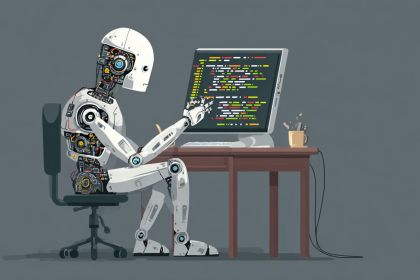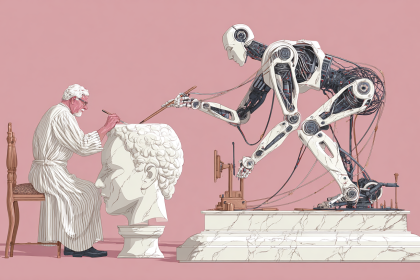The beloved online encyclopedia has been dropping in pageviews over the last few months.
Julian is a contributor and former staff writer at CNET. He’s covered a range of topics, such as tech, crypto travel, sports and commerce. His past work has appeared at print and online publications, including New Mexico Magazine, TV Guide, Mental Floss and NextAdvisor with TIME. On his days off, you can find him at Isotopes Park in Albuquerque watching the ballgame.
Wikipedia has seen a decline in users this year due to artificial intelligence summaries in search engine results. The growing popularity of social media also contributes to the traffic decline, according to a blog post from Marshall Miller of the Wikimedia Foundation, the organization that oversees the free online encyclopedia.
In the post, Miller describes an 8% drop in human pageviews over the last few months compared with the numbers Wikipedia saw in the same months in 2024.
“We believe that these declines reflect the impact of generative AI and social media on how people seek information, especially with search engines providing answers directly to searchers, often based on Wikipedia content,” Miller wrote.
Don’t miss any of our unbiased tech content and lab-based reviews. Add CNET as a preferred Google source.
Blame the bots AI-generated summaries that pop up on search engines like Bing and Google often use bots called web crawlers to gather much of the information that users read at the top of the search results.
CNETWebsites do their best to restrict how these bots handle their data, but web crawlers have become skilled at going undetected.
“Many bots that scrape websites like ours are continually getting more sophisticated and trying to appear human,” Miller wrote.
After reclassifying Wikipedia traffic data from earlier this year, Miller says the site “found that much of the unusually high traffic for the period of May and June was coming from bots built to evade detection.”
The Wikipedia blog post also noted that younger generations are turning to social-video platforms for information rather than the open web and sites such as Wikipedia.
Gerry Murray, a research director at IDC, a market data provider, says brands, publishers, and creators should be willing to rethink their approach to adapt to AI.
“The new reality is that conversational AI does not refer users to websites,” Murray said. “It’s up to the publishing industry to find new ways to protect and monetize their content.”
When people search with AI, they’re less likely to click throughThere is now promising research on the impact of generative AI on the internet, especially concerning online publishers with business models that rely on users visiting their webpages.
(Disclosure: Ziff Davis, CNET’s parent company, in April filed a lawsuit against OpenAI, alleging it infringed Ziff Davis copyrights in training and operating its AI systems.)
In July, Pew Research examined browsing data from 900 US adults and found that the AI-generated summaries at the top of Google’s search results affected web traffic. When the summary appeared in a search, users were less likely to click on links compared to when the search results didn’t include the summaries.
Google search is especially important, because Google.com is the world’s most visited website — it’s how most of us find what we’re looking for on the internet.
“LLMs, AI chatbots, search engines and social platforms that use Wikipedia content must encourage more visitors to Wikipedia, so that the free knowledge that so many people and platforms depend on can continue to flow sustainably,” Miller wrote. “With fewer visits to Wikipedia, fewer volunteers may grow and enrich the content, and fewer individual donors may support this work.”
Last year, CNET published an extensive report on how changes in Google’s search algorithm decimated web traffic for online publishers.









